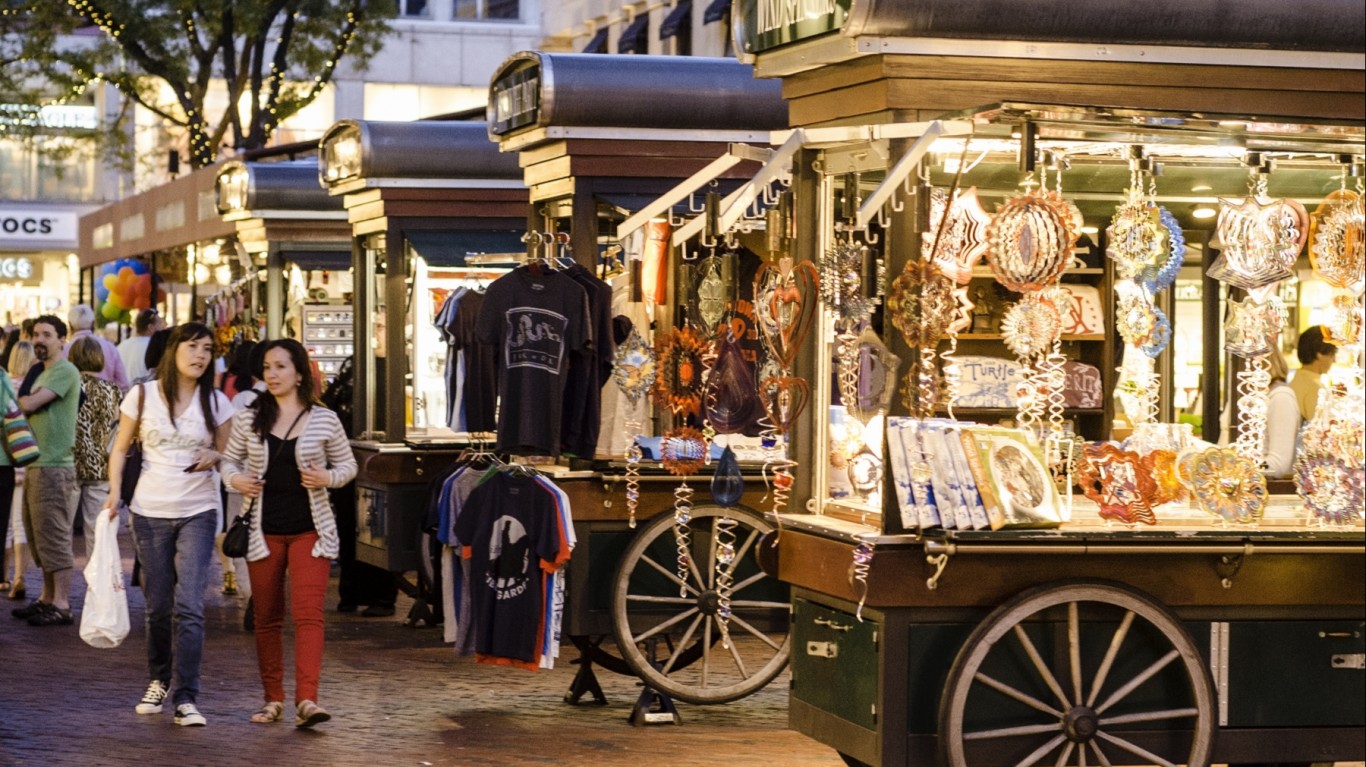
New England — comprised today of the states of Maine, Vermont, New Hampshire, Massachusetts, Connecticut, and Rhode Island — was given its name by English explorer John Smith in 1616, and the term became official four years later.
While other parts of what is now the United States were settled by the Spanish, the Dutch, the French, and even the Russians (primarily in what are now Alaska and California), the English overwhelmingly colonized the far upper righthand corner of our country, and English has been the major “foreign” language spoken in the region since the beginning.
But in some cases, that language has developed into a kind of English that people from other parts of America can’t easily understand. In common with every culturally unique and reasonably cohesive corner of the nation, New England has developed its own vocabulary and its own way of expressing everyday concerns. Often these are unique to just a single state, or even a single city or rural area.
All 50 of the words and phrases in this list might not be in frequent current usage — and they certainly aren’t used in every part of New England — but you will certainly hear a good many of them at various times, in various places, and you just might want to know what they mean.
The country that forms upper New England’s northern border has its own way of using English, and there are plenty of Canadian slang words and phrases Americans just don’t get.
Click here to see things they say in New England that the rest of us probably don’t get

Aback
Stymied, at a standstill, or behind, as in “I’m all aback with my homework.”
[in-text-ad]

Ayuh
“Yes,” especially in Maine The first syllable is sometimes pronounced to rhyme with “day,” but the term is apparently derived from the old English term (now mostly nautical) “aye” — as in “Aye, aye, Captain.”
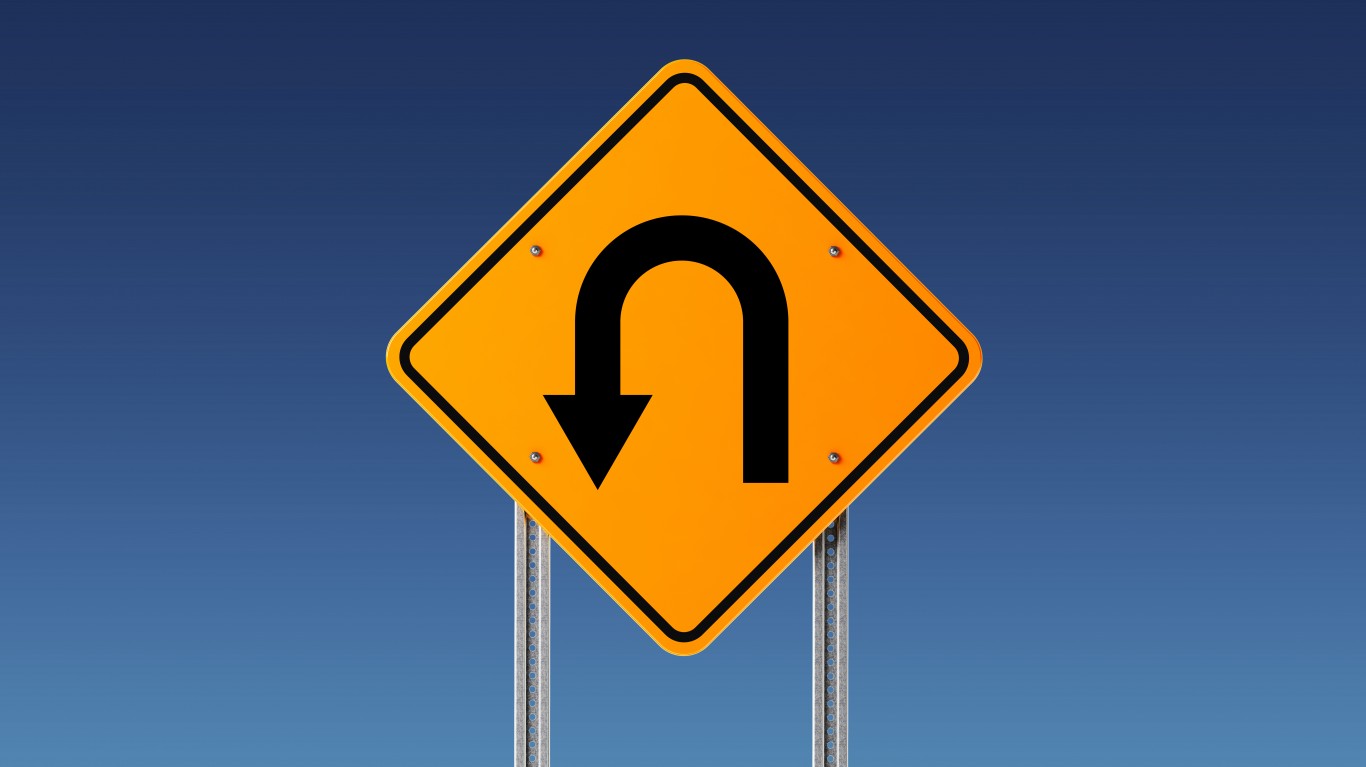
Bang a Uey
Also “bang a U-ie.” To make a U-turn. (In other parts of the country, the phrase might be “Hang a Uey.”). It is also possible to “Bang a left” or “a right.”

Bang out
A Boston term meaning to call in sick to work. “Bang” also means to move quickly (see “bang a Uey,” above), so to bang out could also be to book it (see below).
[in-text-ad-2]

Barrel
A trash can or garbage bin.

Booken it
Also “booking it.” Leaving quickly, running away.
[in-text-ad]

Bubbler
A water fountain. For some reason the same term is also common in Wisconsin. Typically pronounced “bubblah.”

Bug
A lobster. Mostly used in lobster-centric Maine. (Australians also call certain types of lobsters bugs.)

Carriage
A grocery cart.
[in-text-ad-2]

Clicker
The remote control for a TV or entertainment center.

Creemee
A Vermont term for what is known elsewhere as soft-serve ice cream. Also creamie.
[in-text-ad]
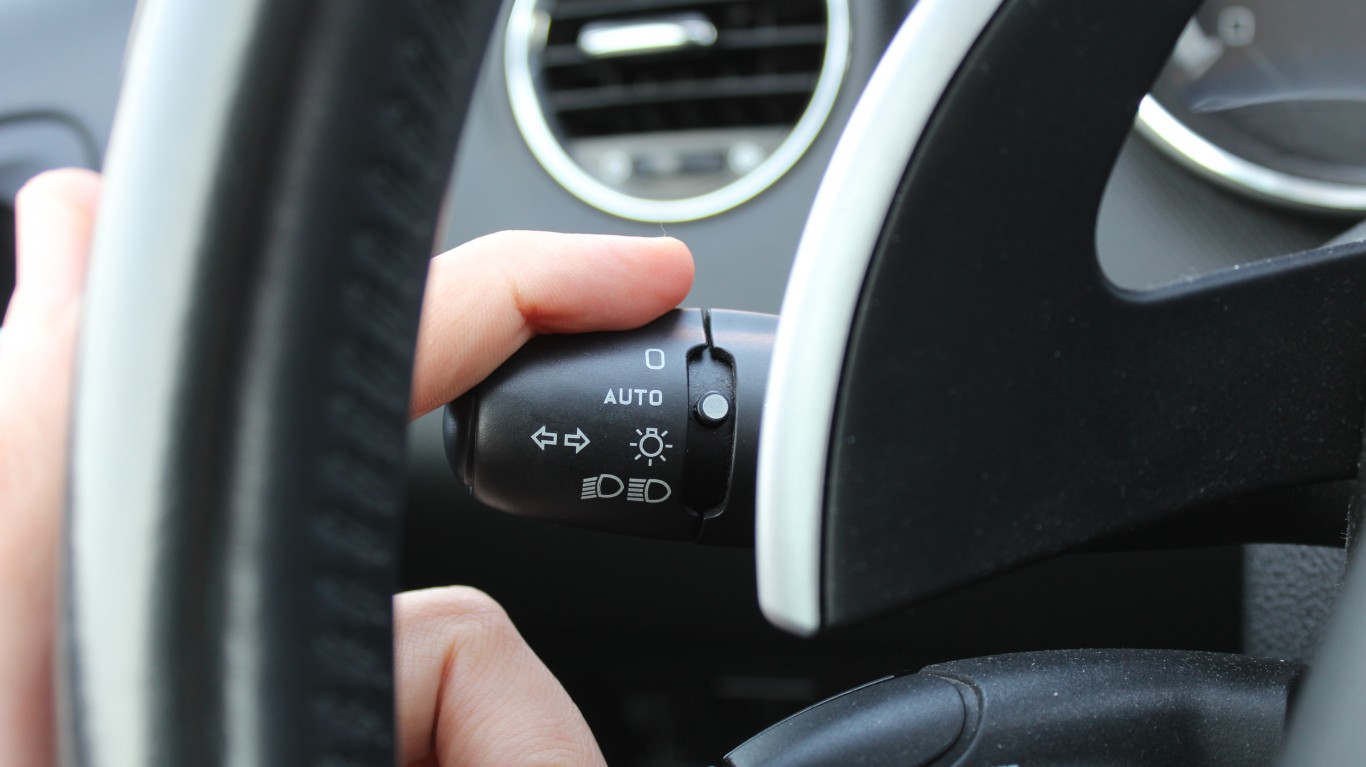
Directional
A car turn signal, especially in Boston. Also called a blinker, or “blinkah.”
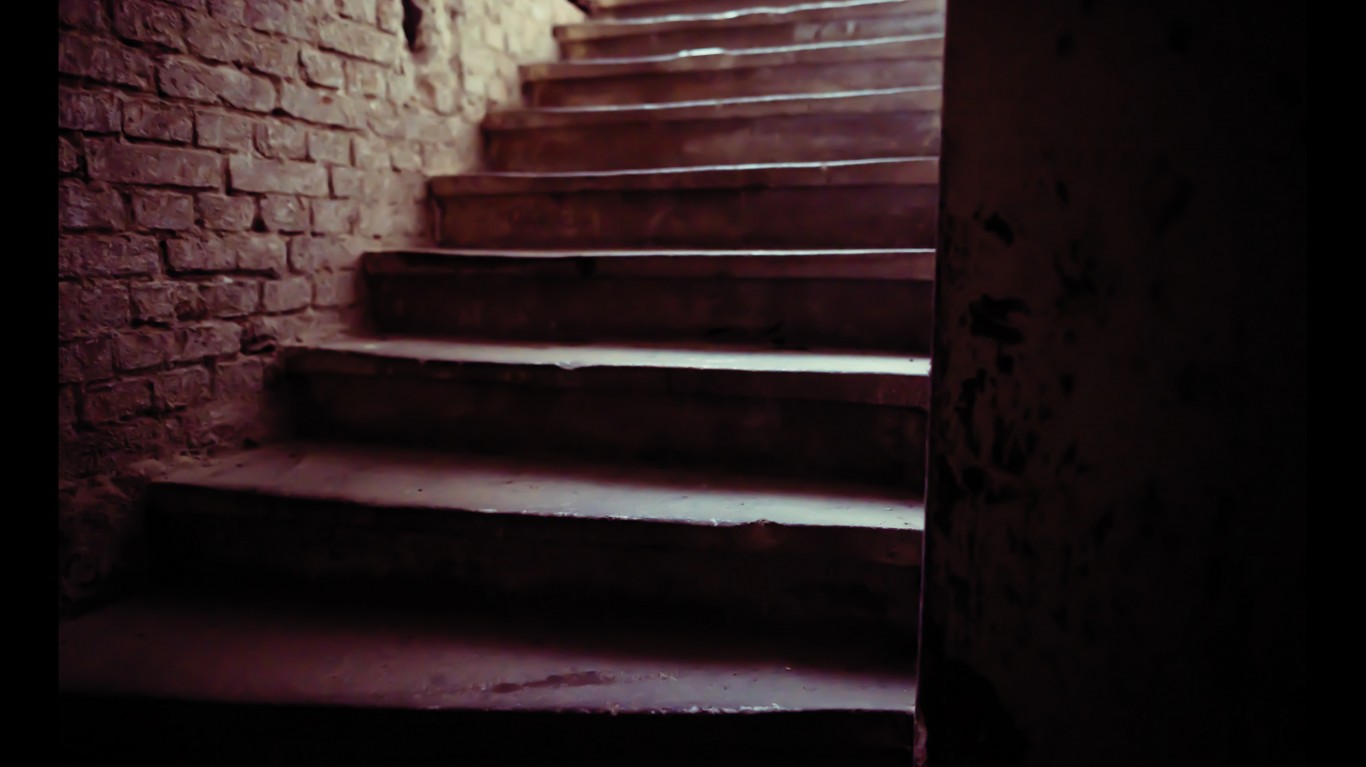
Down cellar
Short for “down in the cellar,” used as a synonym for “basement” — as in “Put those boxes down cellar.”
[in-text-ad-2]

Down east
A portion of northeastern coastal Maine — not southeastern, as the term would suggest. The phrase has nautical origins: Eastward winds would push sailing ships towards the coast; they were said to be traveling downwind — hence the “down” and the “east.”

Dungarees
Blue jeans or denim trousers. Also used in the United Kingdom and, in earlier times, in other parts of the U.S. The term comes from one of several languages on the Indian subcontinent, originally referring to a fortified port from which the cloth was traded.
[in-text-ad]

Elastic
Otherwise known as a rubber band.

Flatlander
A disparaging term used in Vermont to describe out-of-staters who are unfamiliar with local ways or bring negative values with them.
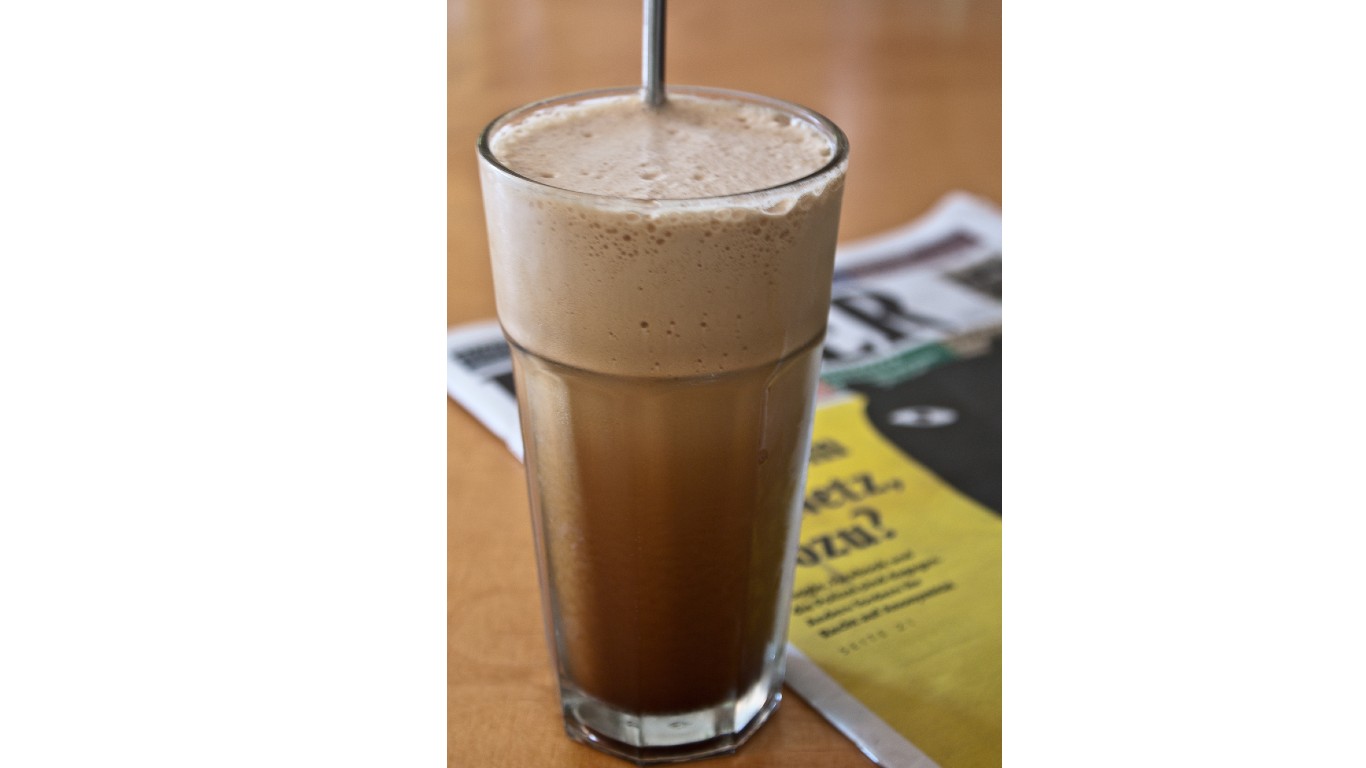
Frappe
In New England, a “milkshake” is usually just milk with chocolate or some other flavor syrup blended in. If you want ice cream to be involved, ask for a frappe — not a “frap-pay,” as the French would pronounce it; just a “frapp.”
[in-text-ad-2]
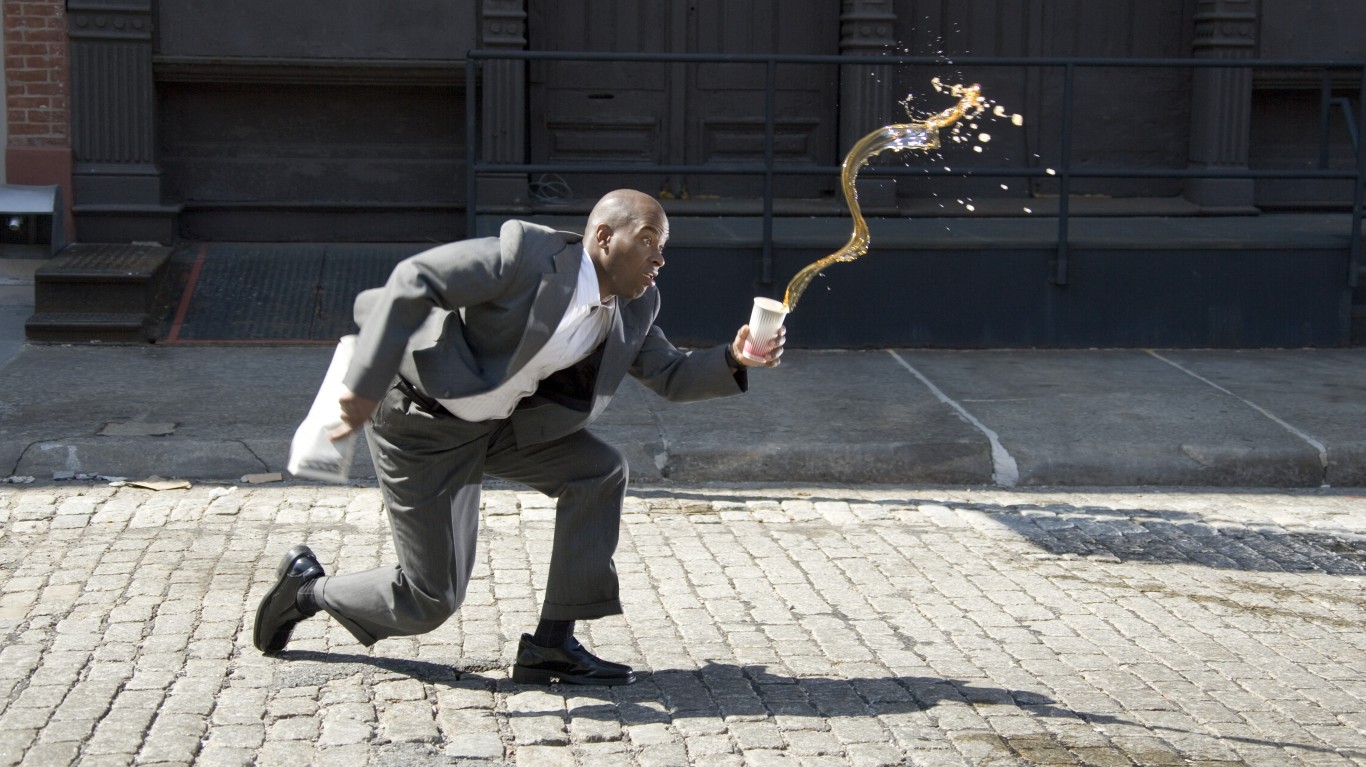
Gawmy
A term unique to Maine, meaning klutzy, accident-prone, likely to do something dumb.
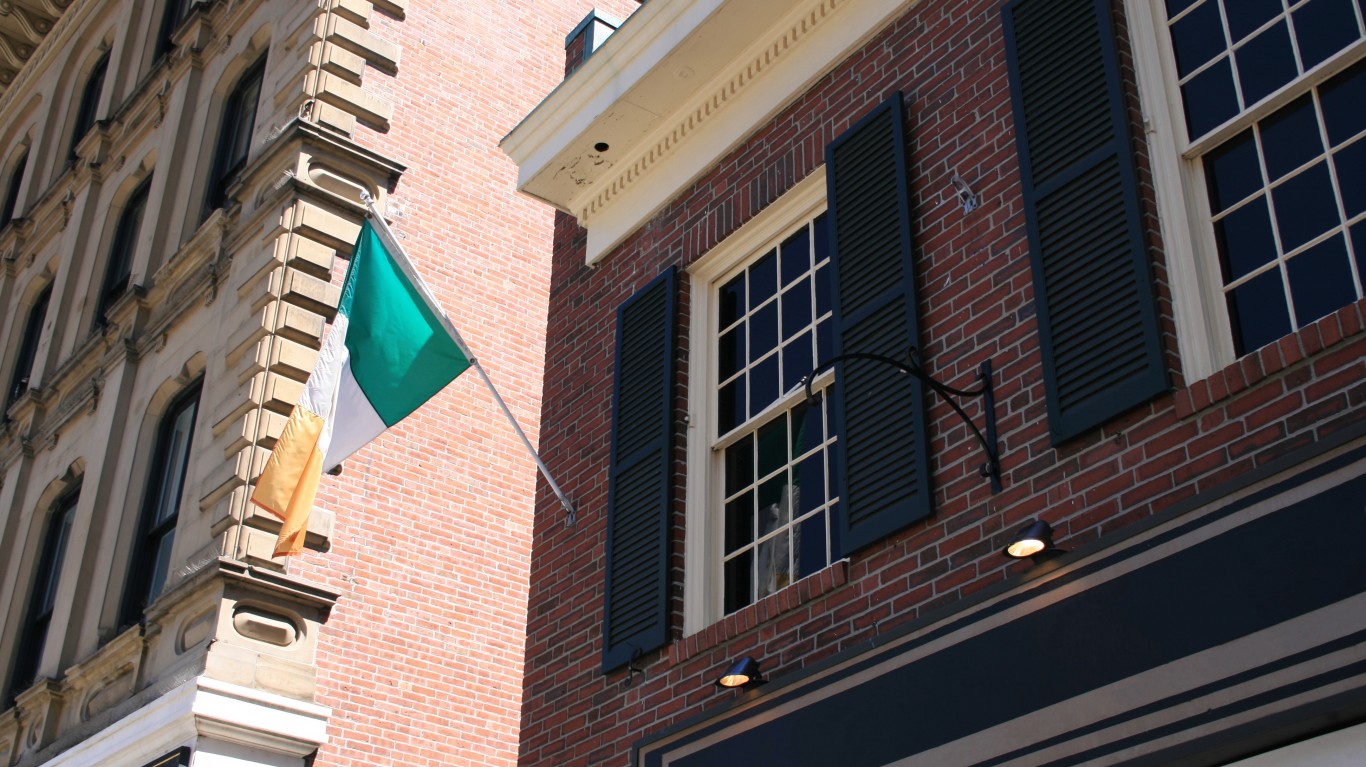
Greenie
A Bostonian word meaning an illegal Irish immigrant. The term presumably is both a reference to the Emerald Isle and an indication that the newcomer is “green,” or inexperienced.
[in-text-ad]
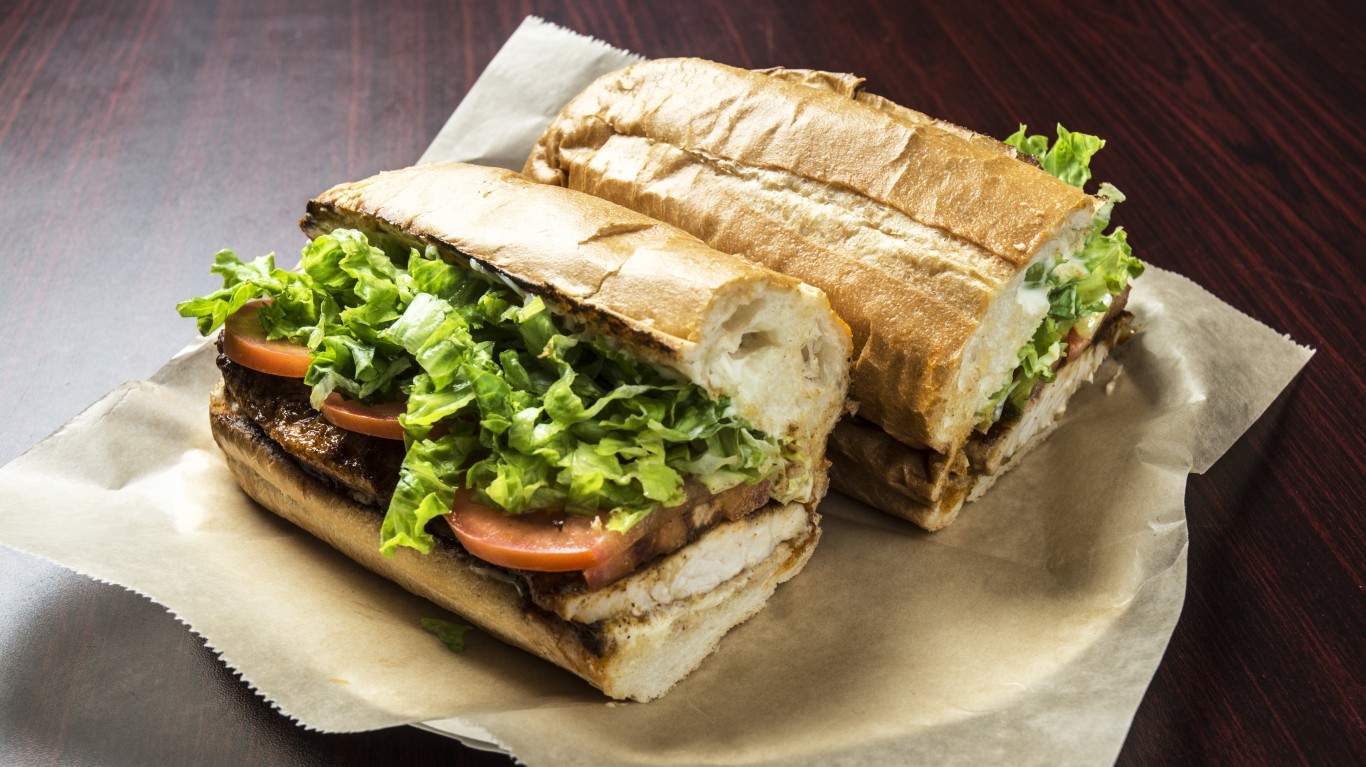
Grinder
A sub or hoagie or wedge or hero, among other things, depending on where you’re from. Some say “grinder” was slang for dock workers (who might have had one for lunch), while others believe it’s a reference to the amount of chewing required for the hard roll it’s on. Some people call only hot sandwiches grinders, while others use it for hot or cold. (The term “sub” or “submarine,” incidentally, may also have New England origins: It is said to have been so named because its shape resembled that of the submarines at the Naval Submarine Base in New London.)
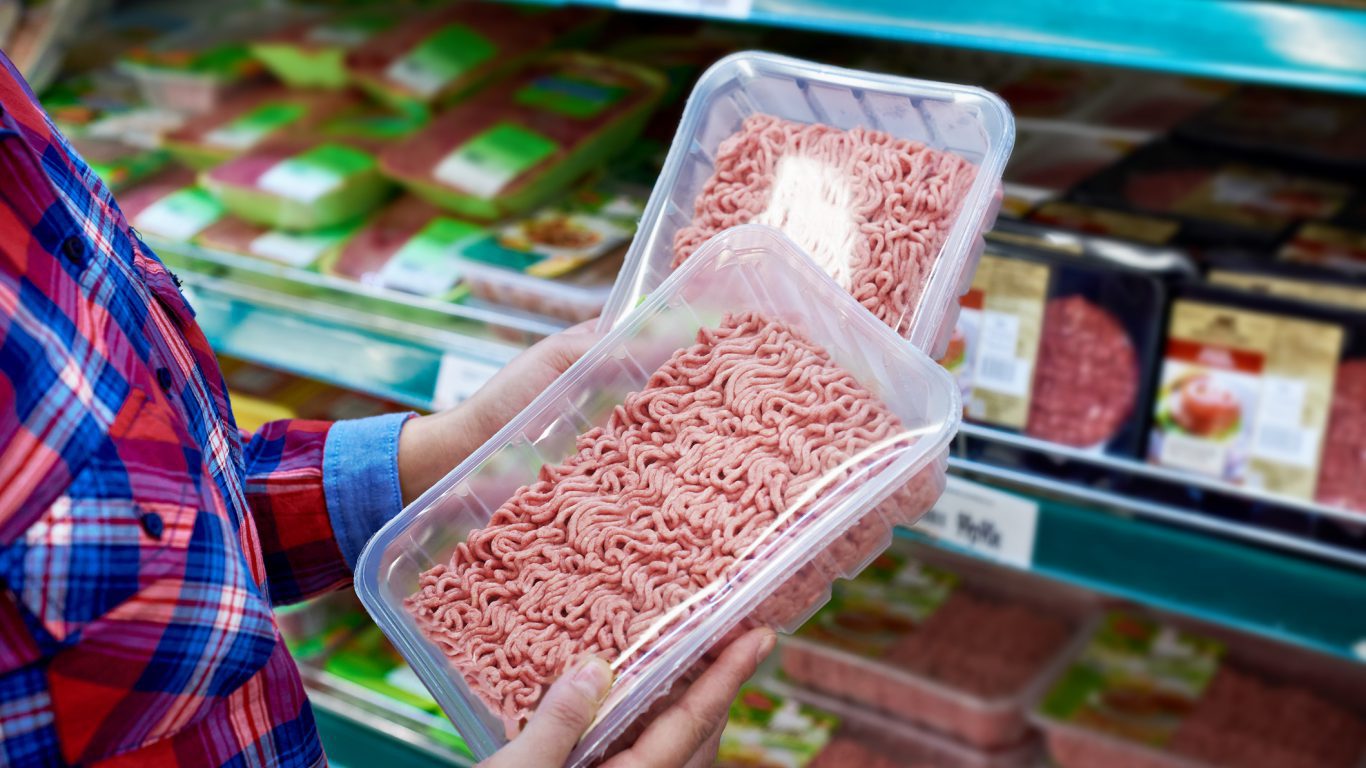
Hamburg
Not exactly a hamburger — not yet, anyway. It means “ground beef” — as in “Pick up a pound of hamburg when you go to the store.”

Ice box
A refrigerator. The term is a reference to a bygone era when food and drink were chilled in insulated boxes filled with ice.
[in-text-ad-2]
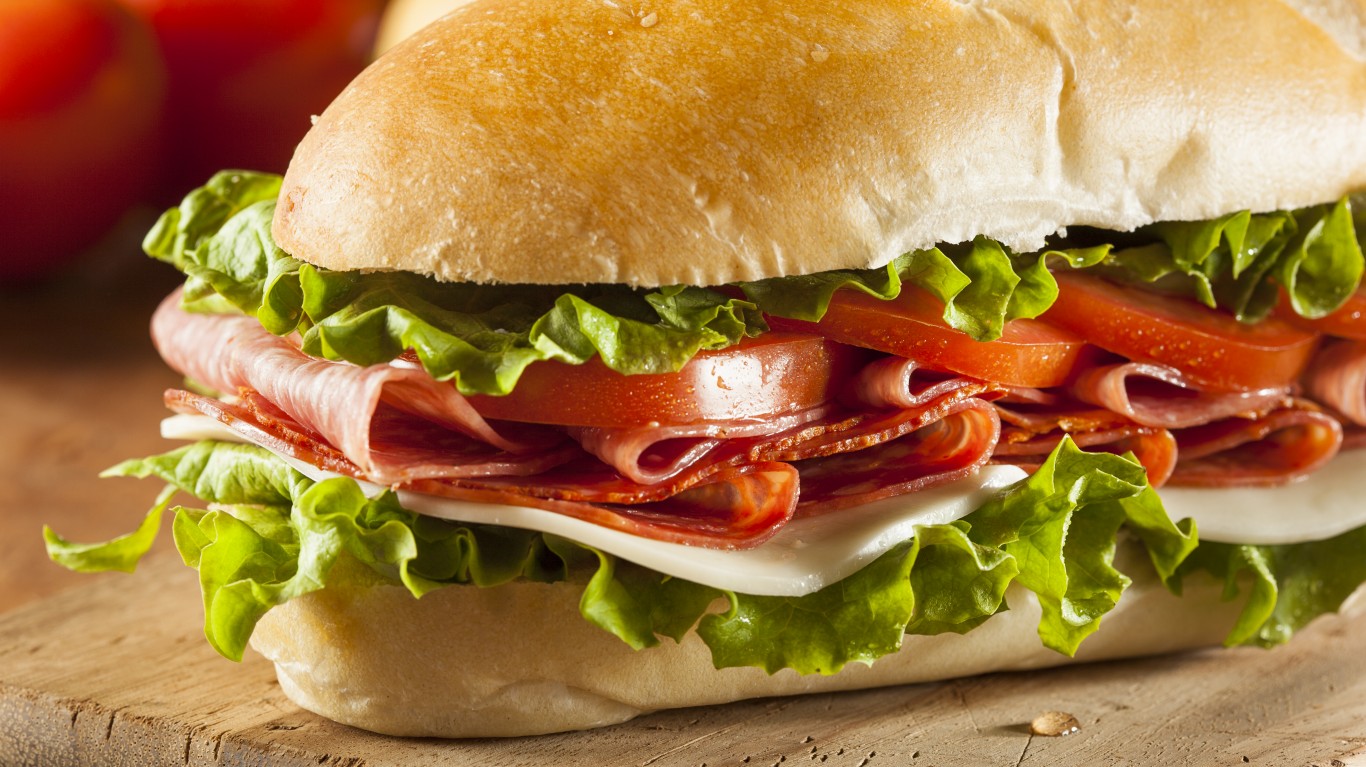
Italian
A grinder (see above) — or whatever else you want to call a sandwich on a long roll, often made with Italian deli meats and cheeses — as in “Pick me up an Italian and a tonic.” The term is heard almost entirely in Maine.
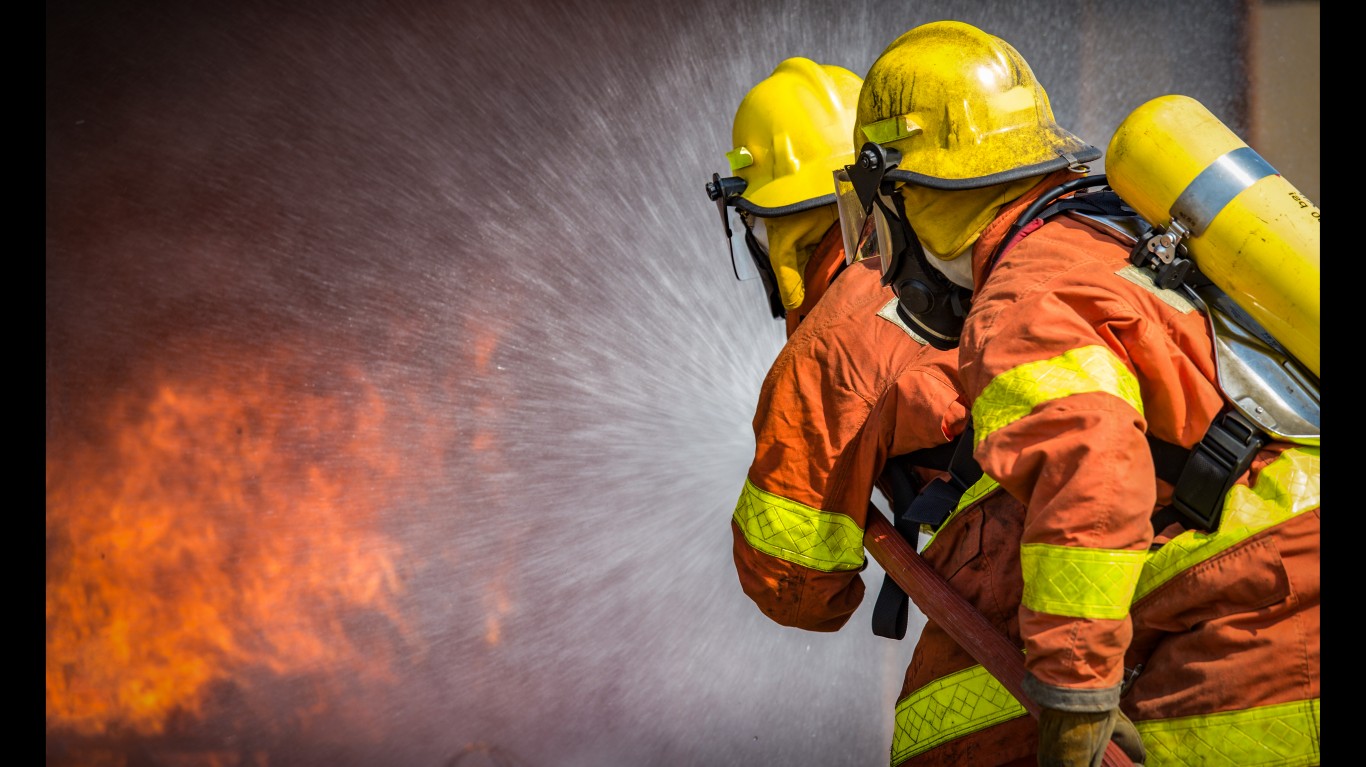
Jake
A fireman. Possibly named after a particularly famous or heroic exemplar of the profession.
[in-text-ad]
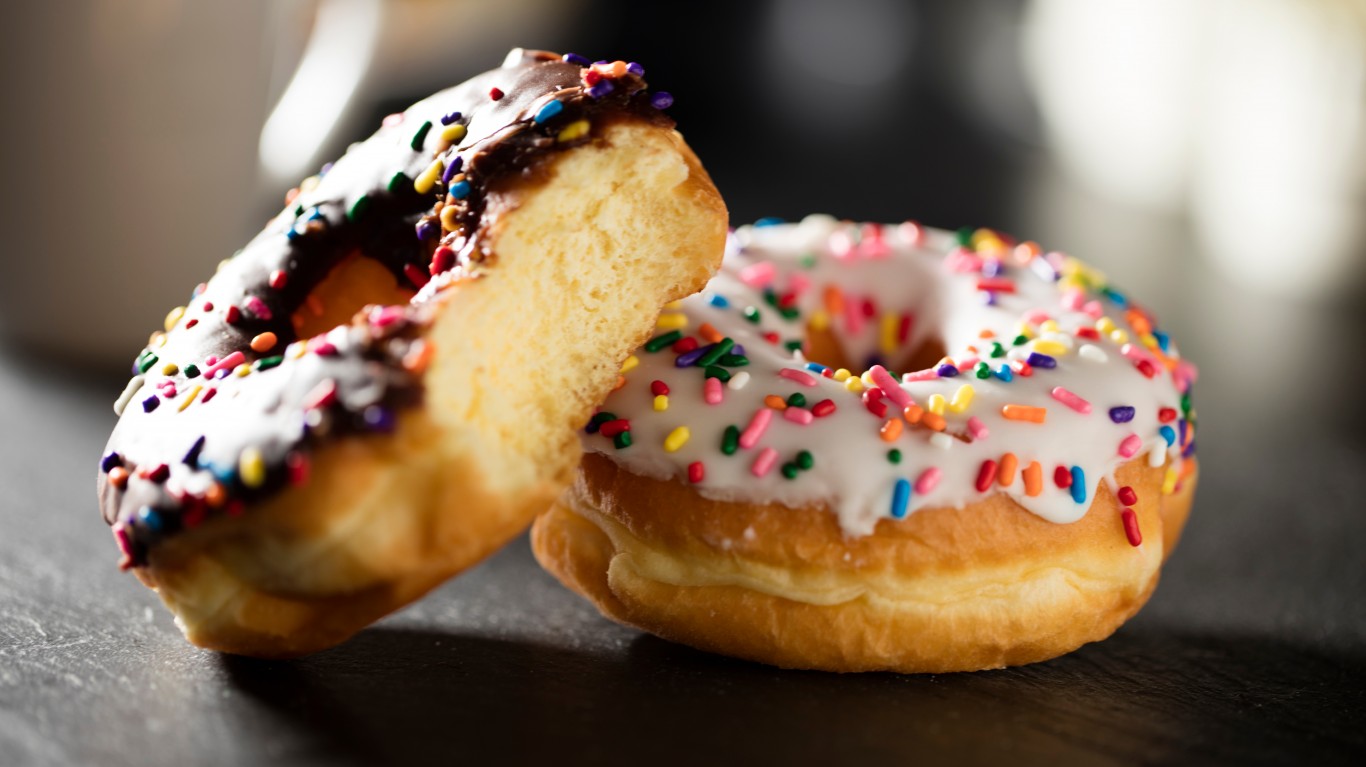
Jimmies
Chocolate or multi-colored sprinkles, like those on birthday cakes or ice cream.

Johnny
Also Johnnie. What they give you to wear when you go to the hospital — a hospital gown. Primarily heard in Boston. It is believed to be derived from the gown’s design that allows better access to the restroom, also called the john.

Numb
Another one from Maine, simply meaning “stupid.”
[in-text-ad-2]
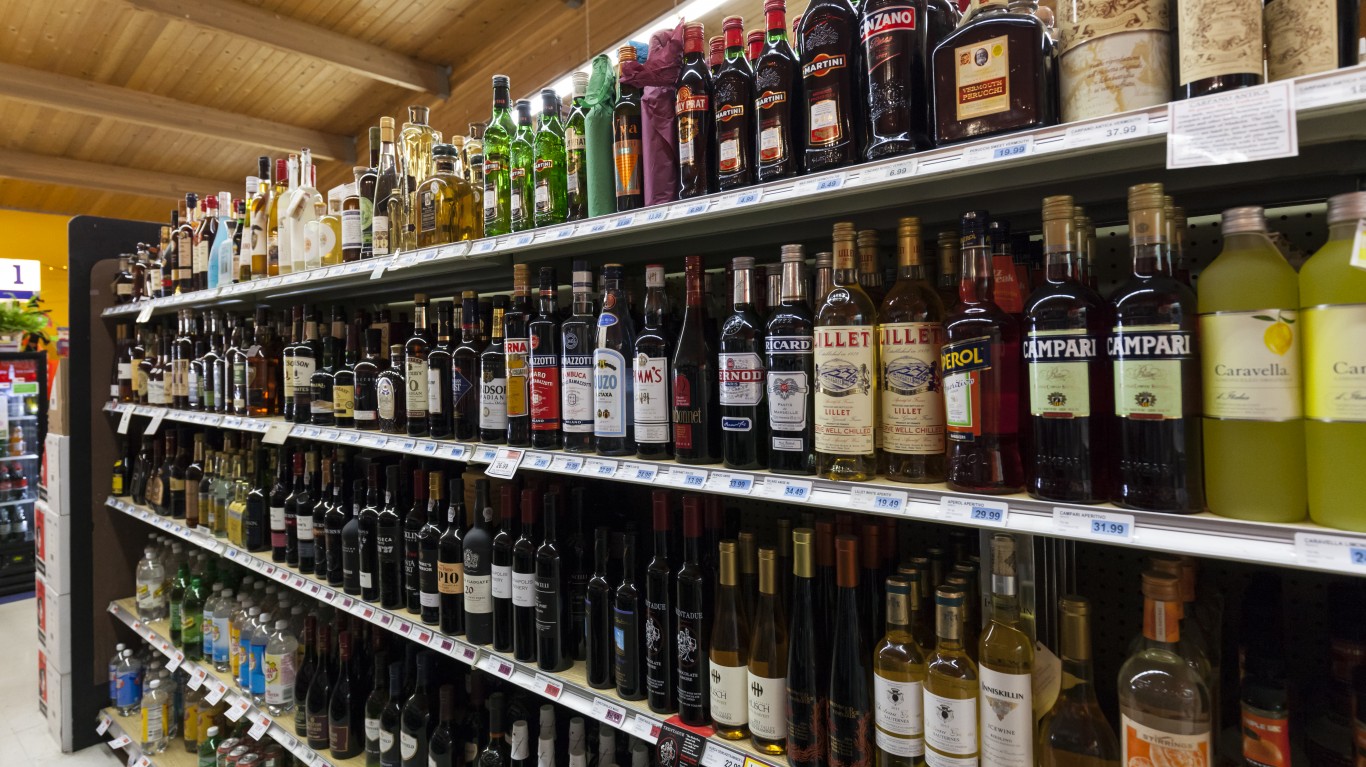
Packie
Short for “package store” — that is, a place to buy liquor.

Parlor
A Boston living room. Pronounced “pahlah,” of course.
[in-text-ad]

Quill pig
A porcupine to a resident of New Hampshire.

Right out straight
A Mainer’s way of saying “very busy” — as in “Can’t come over now, I’m right out straight.”
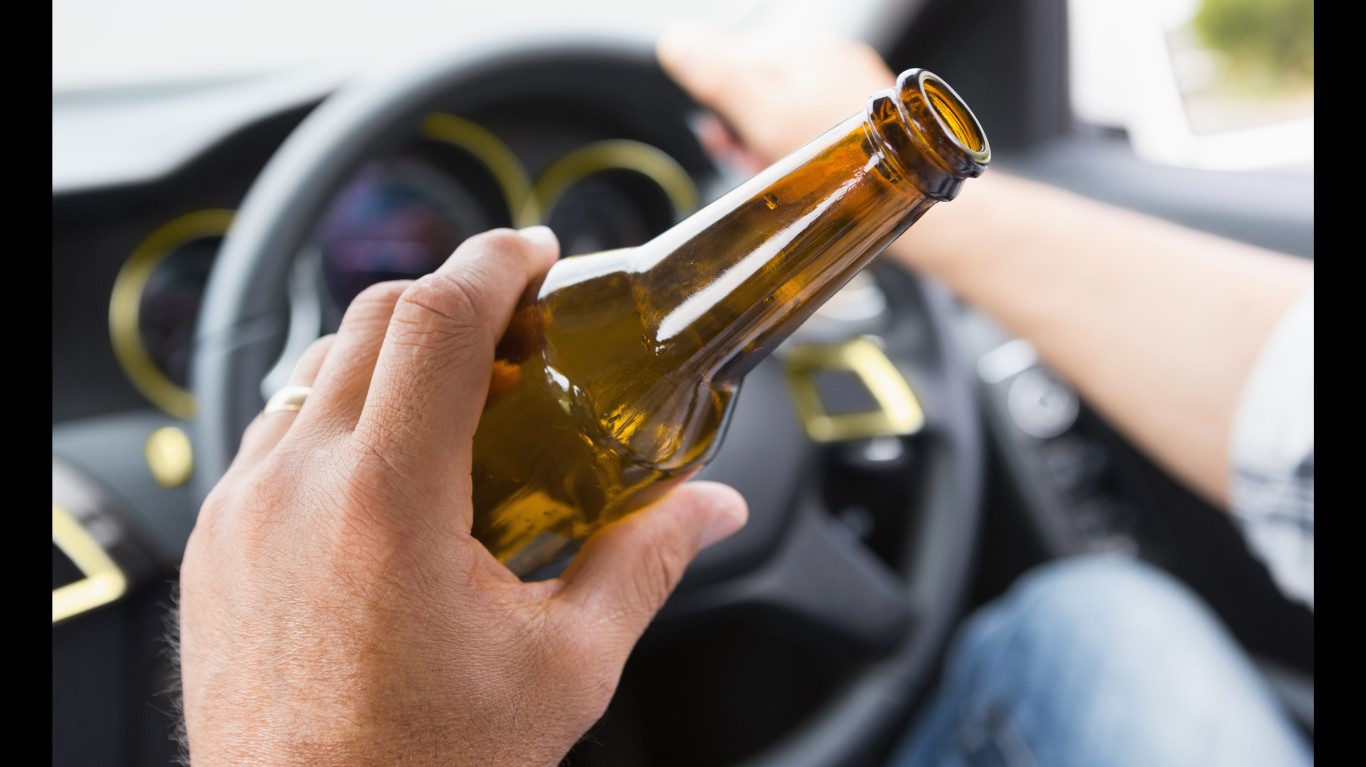
Roadie
Also road soda. Not a stagehand who travels with a rock band, but a beer you drink while driving.
[in-text-ad-2]
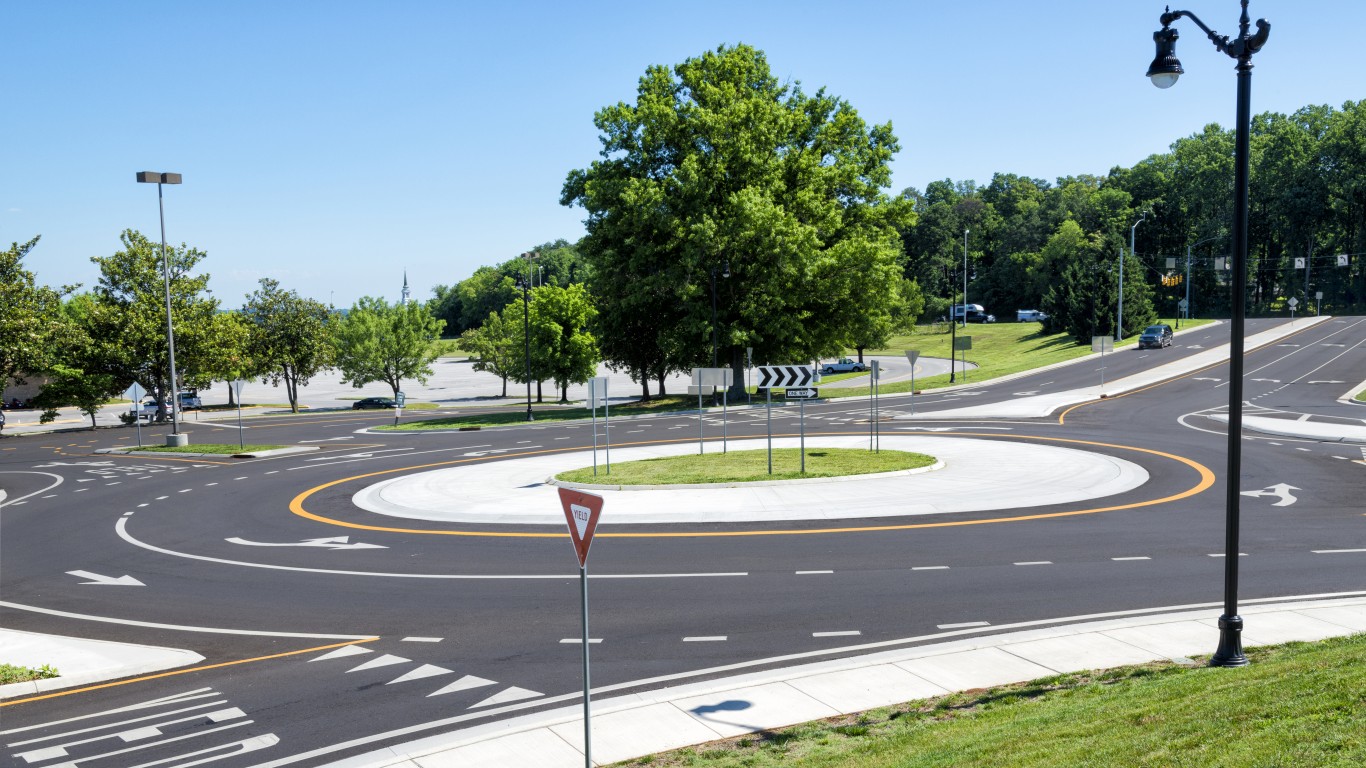
Rotary
A traffic circle. Called a roundabout in some places.

Shiesty
Boston slang for shady or sketchy.
[in-text-ad]
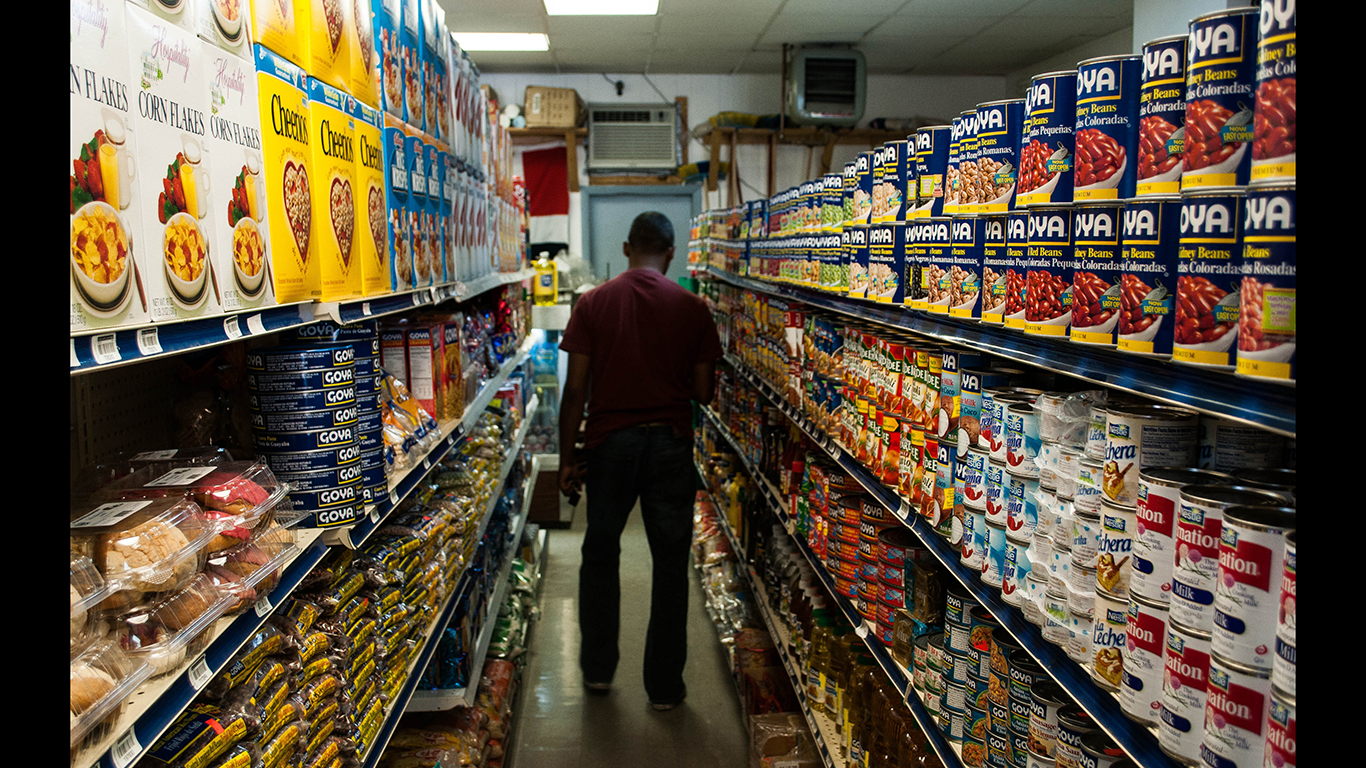
Spa
In Boston and vicinity, a neighborhood shop selling soft drinks, sandwiches, miscellaneous grocery items, etc. Known elsewhere as a bodega, a convenience store, or a deli.

Spleeny
A synonym for nervous or anxious in Maine.
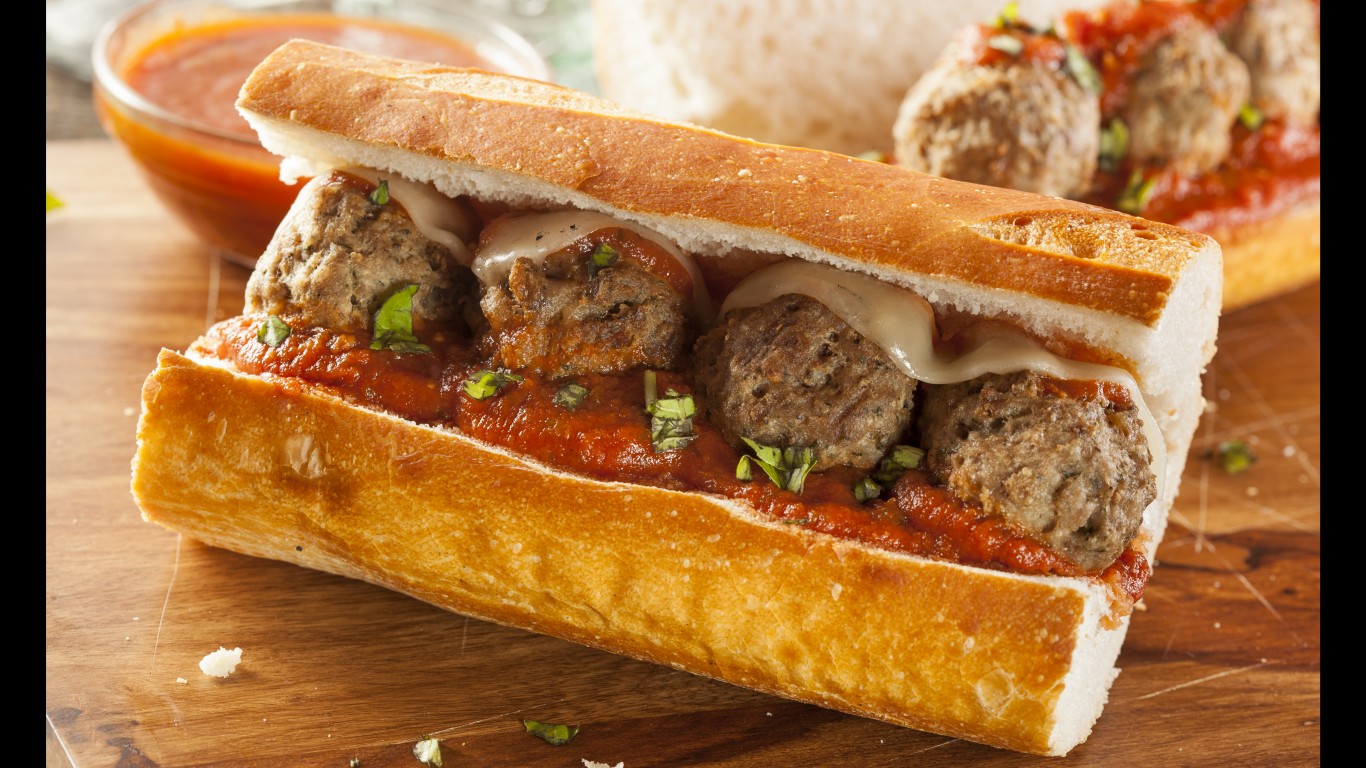
Spuckie
Basically the same thing as a grinder (see above). A term used primarily in Italian neighborhoods in East Boston, said to be short for “spucadella,” an Italian-American name (of uncertain origins) for a kind of long, hard roll.
[in-text-ad-2]
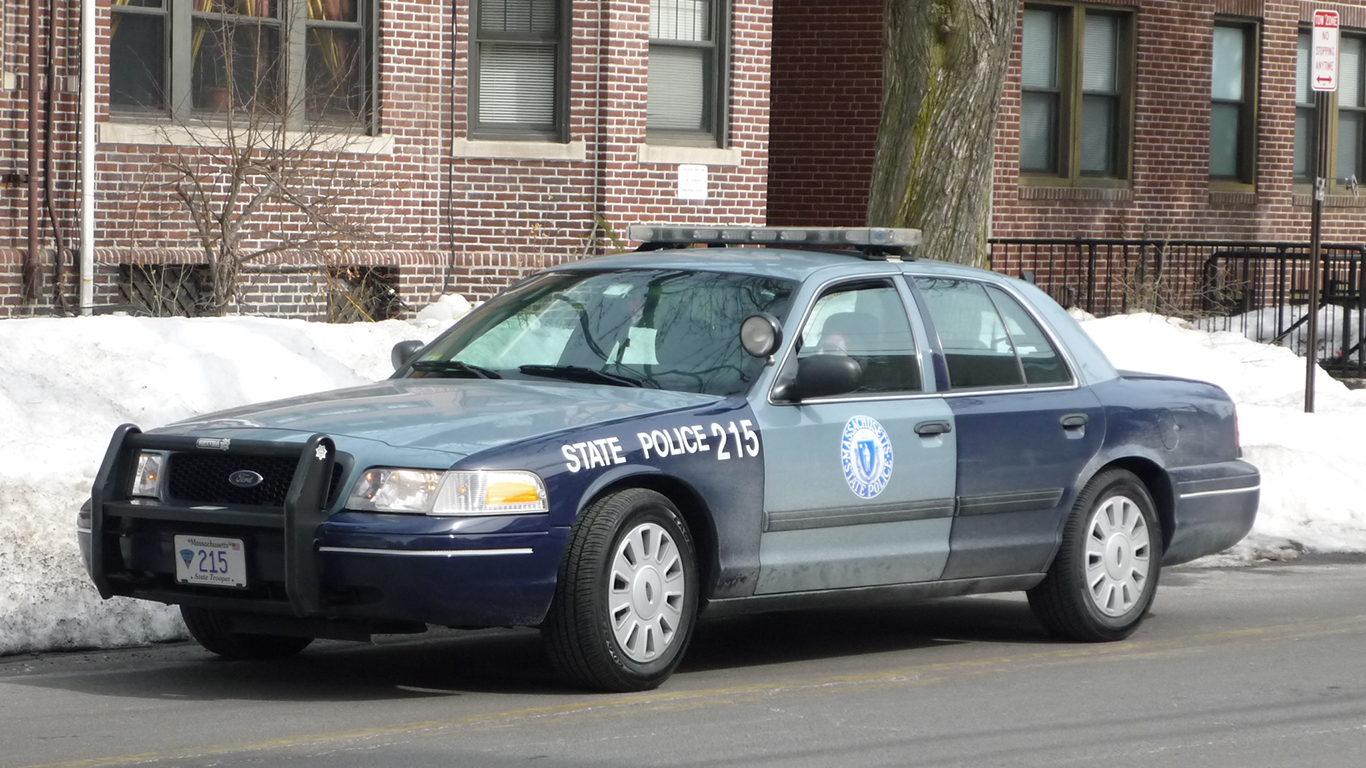
Statie
A Massachusetts State trooper (or “troopah”).
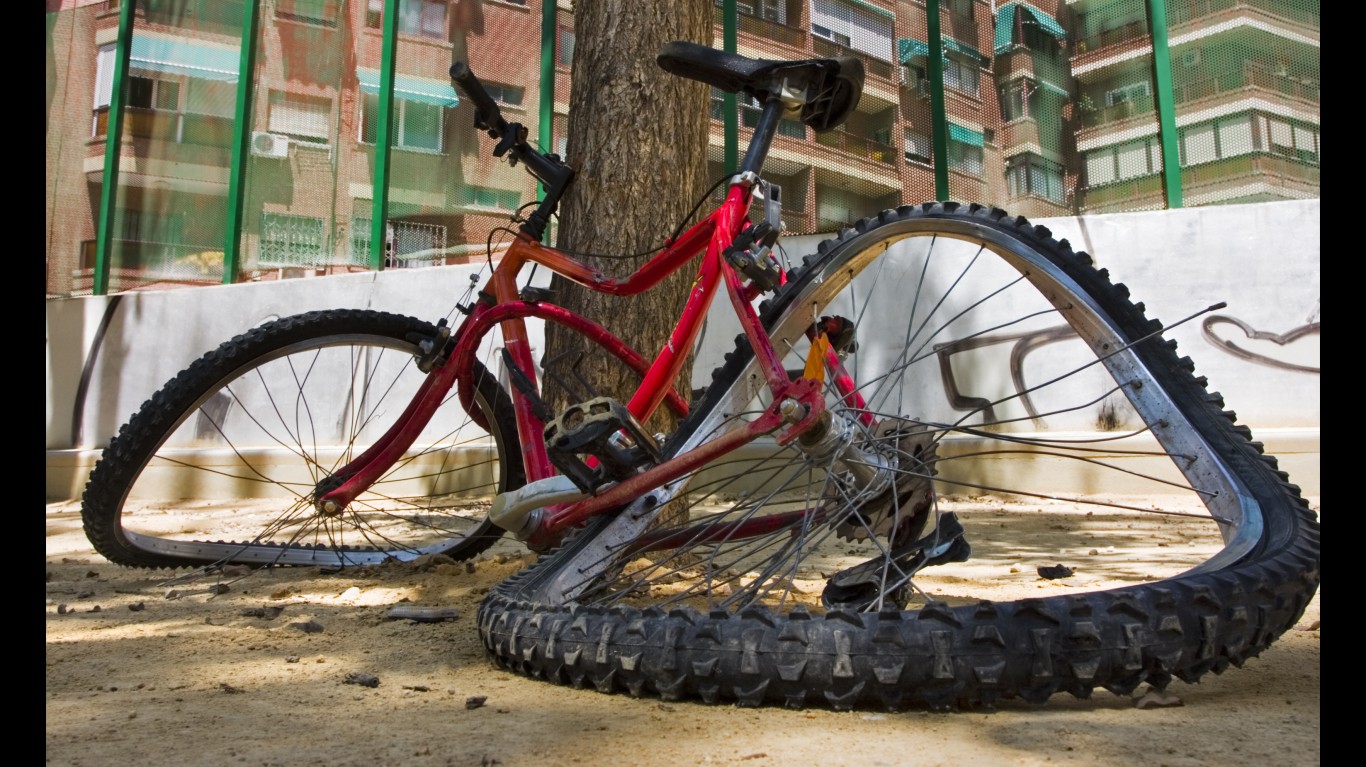
Stoved-up
Also just stoved. A Mainer’s way of saying broken or messed up.
[in-text-ad]

Swamp donkey
This is what some people call a moose in Maine.

Tonic
Not tonic water, as in vodka and tonic. A generic term for soft drinks — soda, pop, etc.
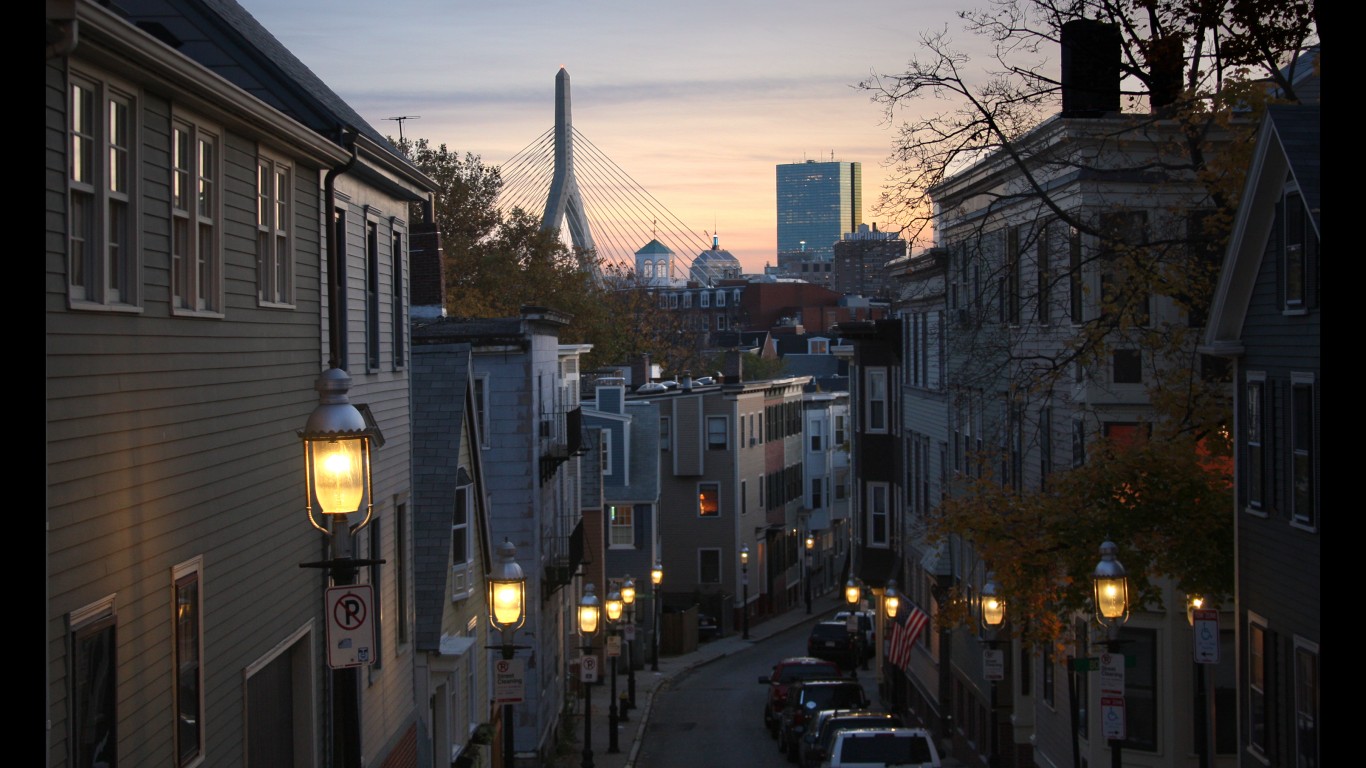
Townie
Originally somebody from the Boston neighborhood of Charlestown, or one of the city’s other Irish-Catholic areas. Also someone who has spent his or her whole life in one town.
[in-text-ad-2]

Unthaw
Counterintuitively, this means “thaw” to Vermonters.
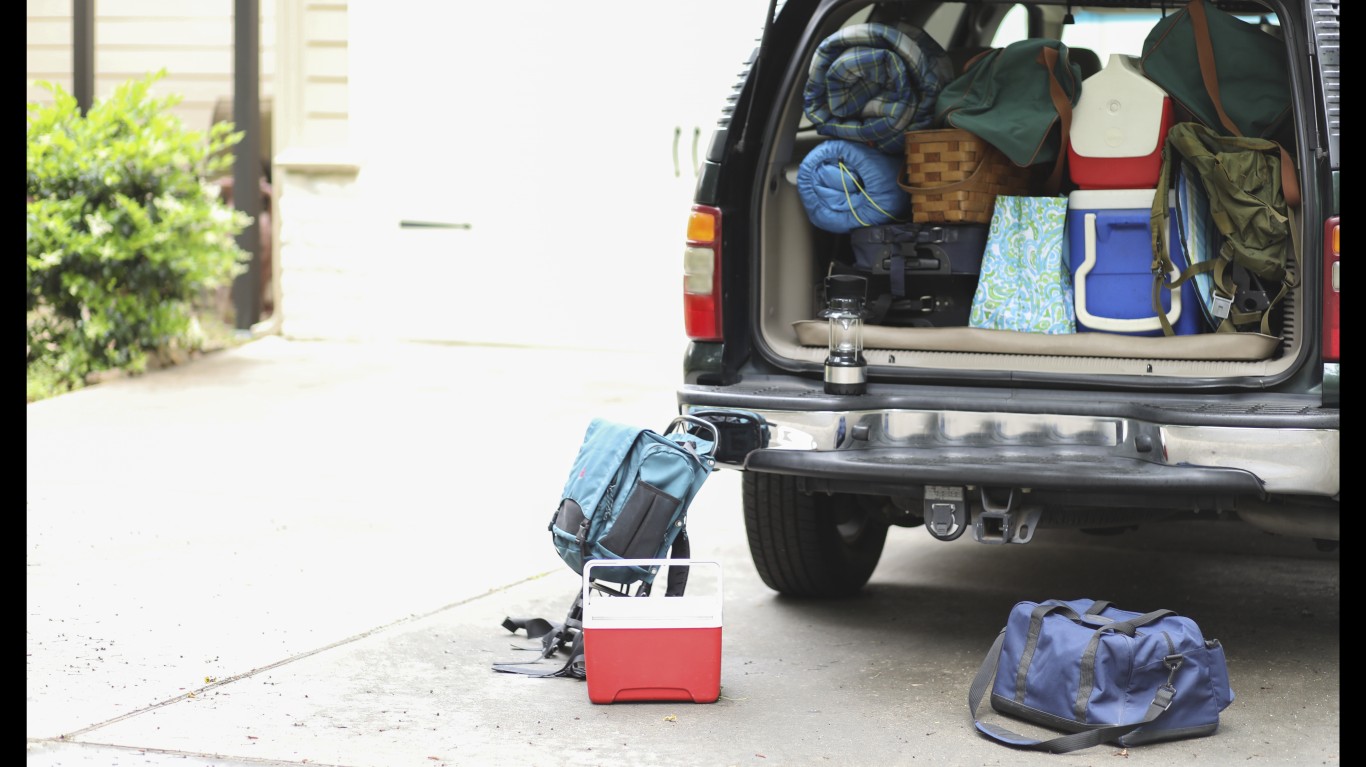
Up
An all-purpose directional in Boston, meaning “up to” or even just “to,” as in “I’m going up Canada on vacation” or “The kids have gone up the movie theater.”
[in-text-ad]

Wicked
Extremely, very, really. Something may be “wicked cool,” “wicked bad,” etc. Widely used around New England.
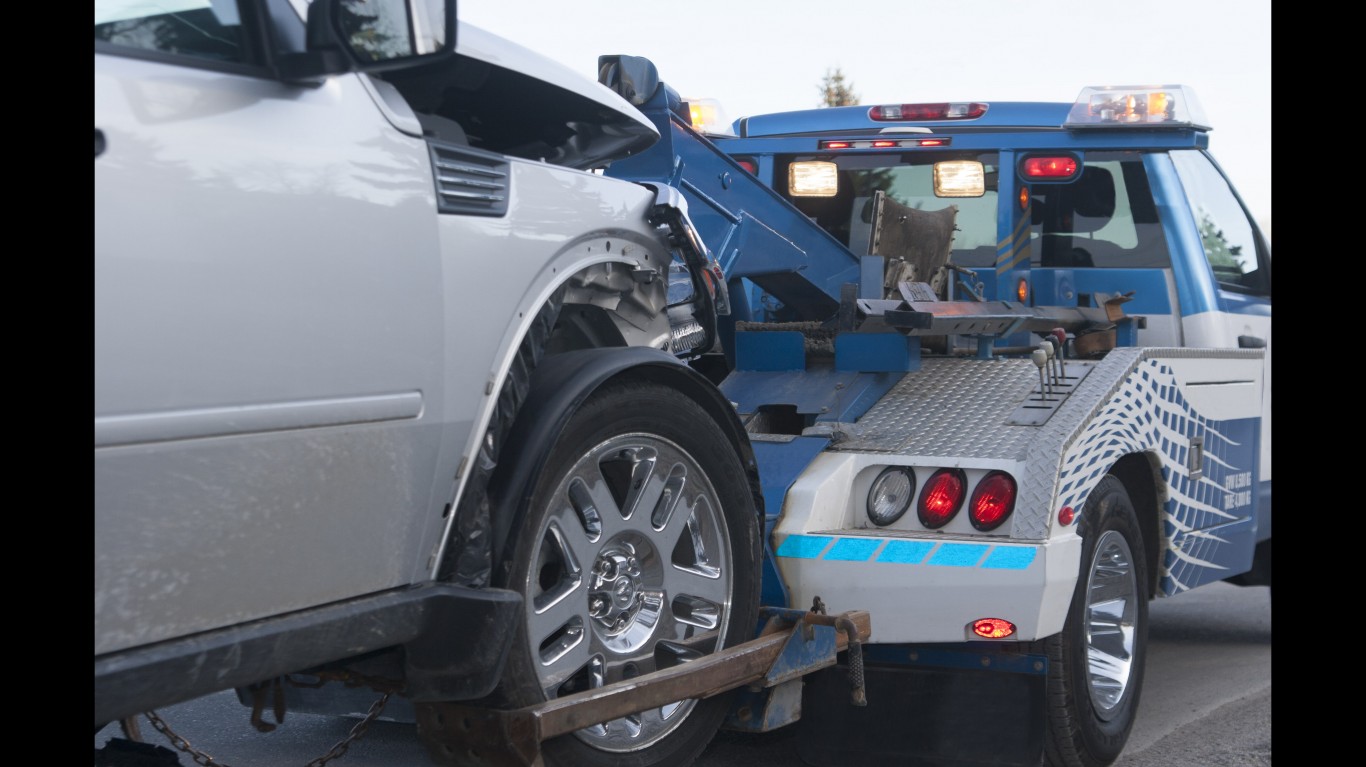
Wrecker
The vehicle that cleans up after a wreck or takes your car away if it’s parked improperly — a tow truck.
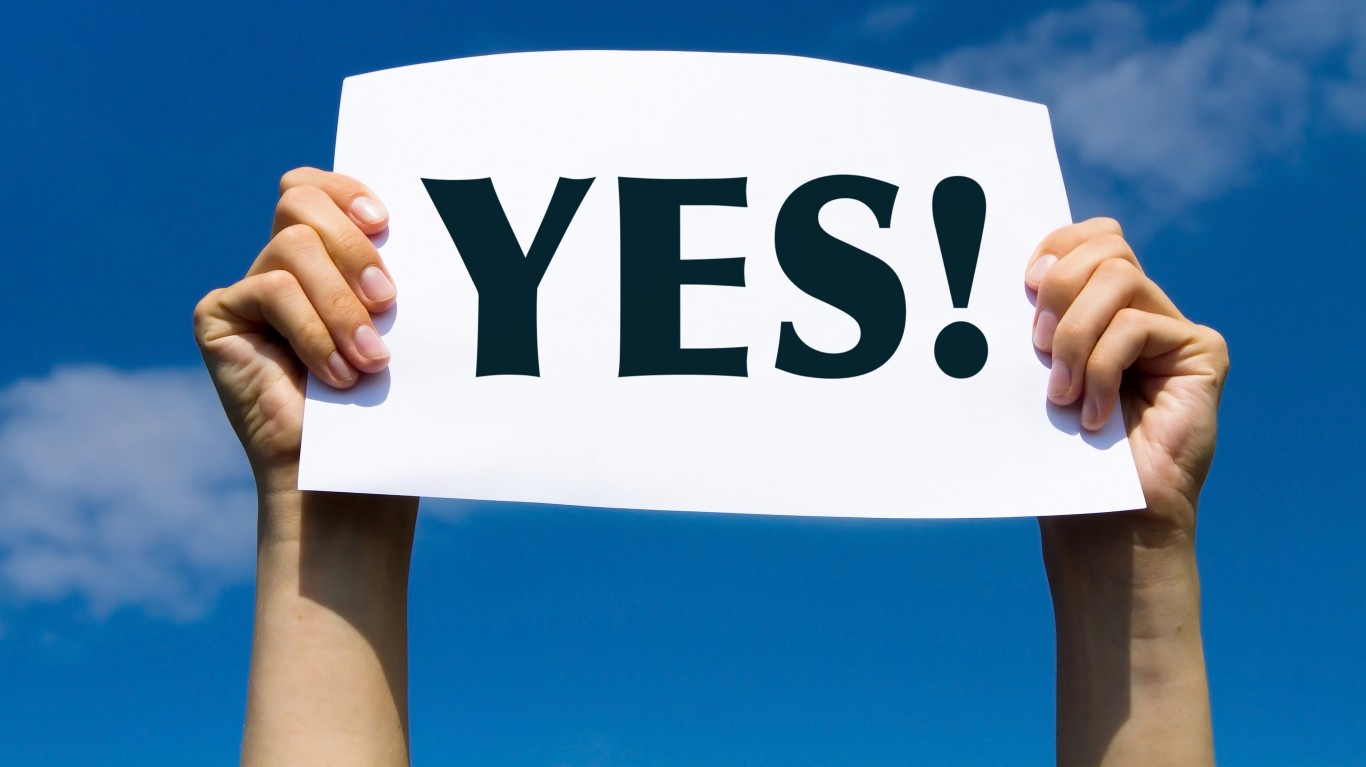
Yah huh
A definite yes in Boston. A response to “No suh!” (meaning more or less “no way!”).
[in-text-ad-2]

Yaulp
A Vermonter’s “Yes.”
Thank you for reading! Have some feedback for us?
Contact the 24/7 Wall St. editorial team.
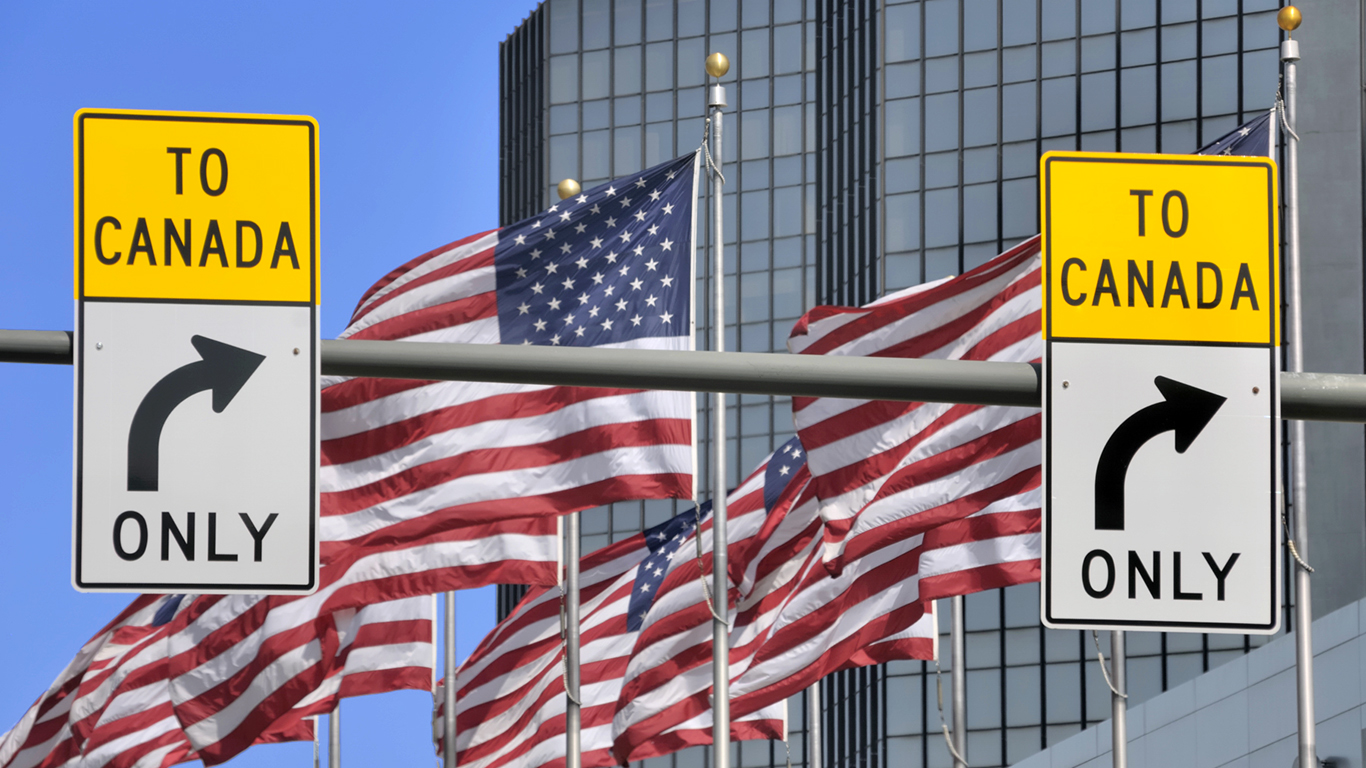 24/7 Wall St.
24/7 Wall St. 24/7 Wall St.
24/7 Wall St.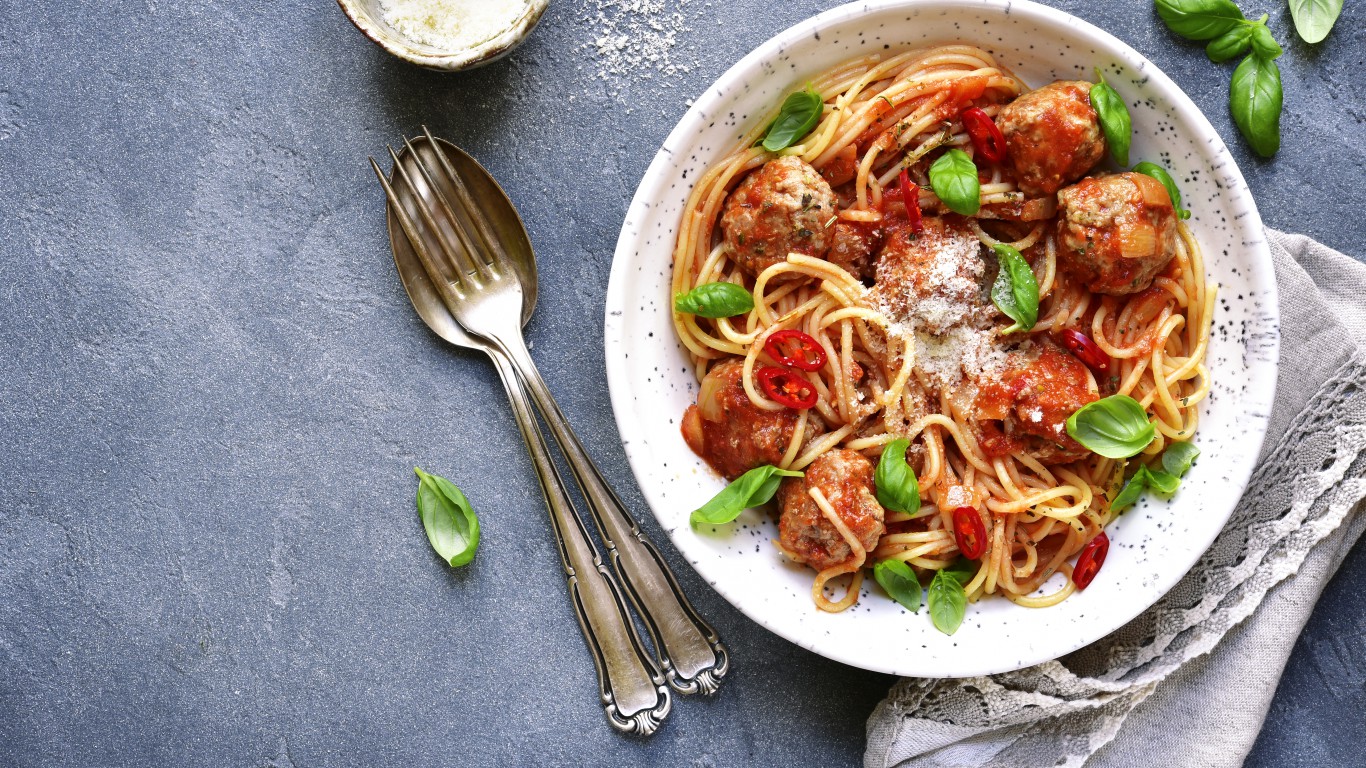 24/7 Wall St.
24/7 Wall St.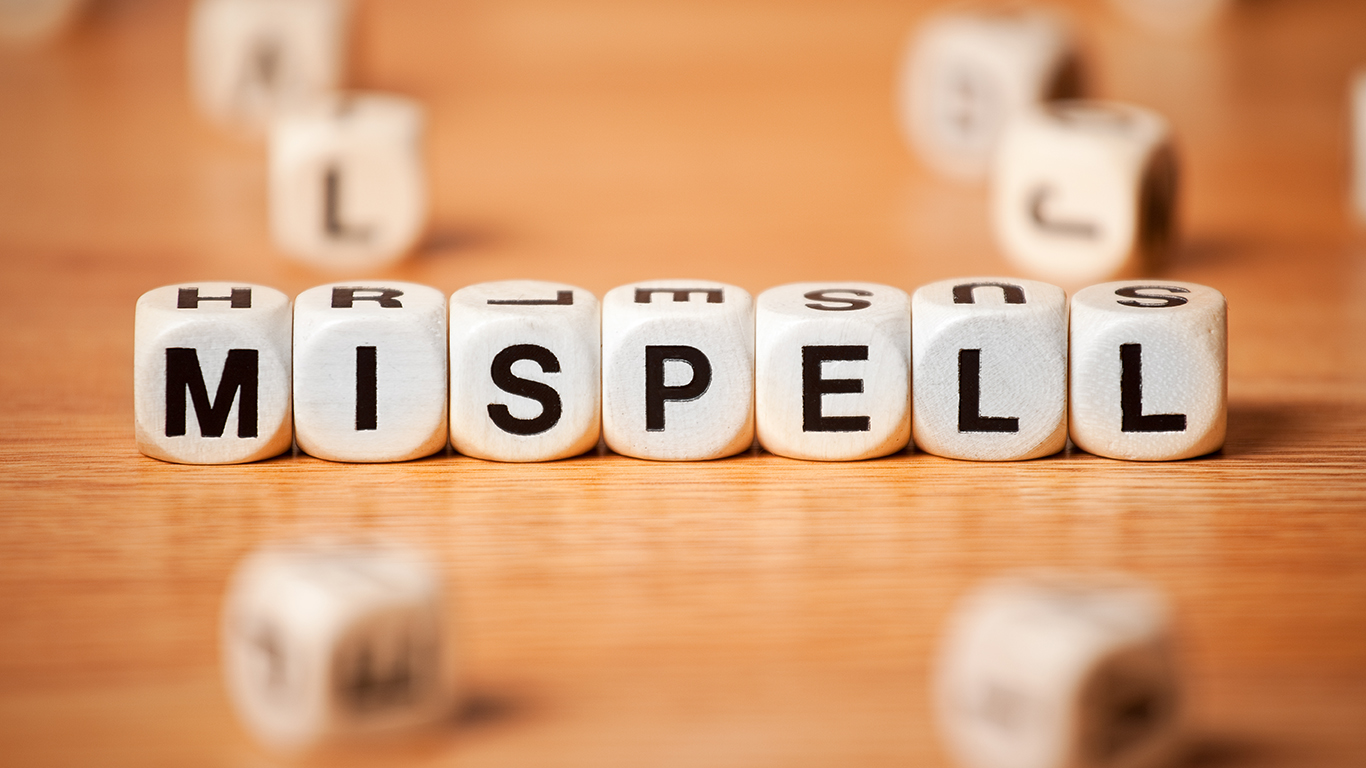 24/7 Wall St.
24/7 Wall St.